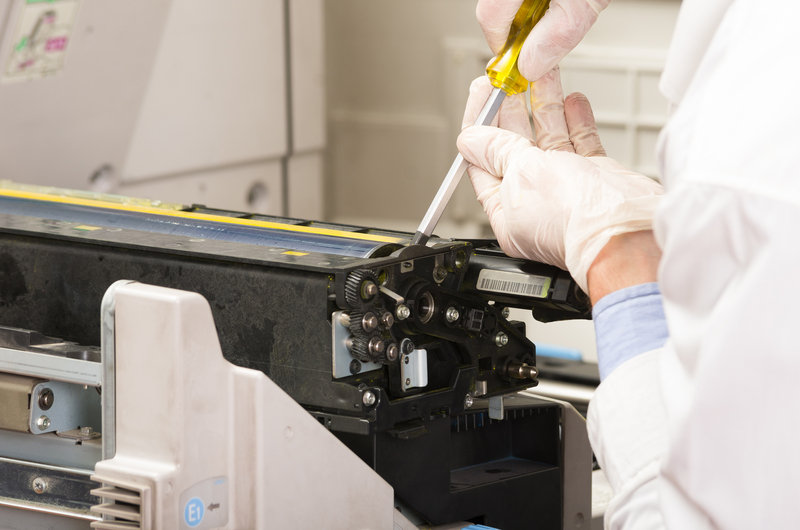In recent years, the focus on sustainability has taken center stage as we strive to preserve our planet for future generations. One practice that has proven invaluable in this endeavor is metal recycling. This article explores how recycling metals contributes to a sustainable future, offering environmental, economic, and societal benefits.
The Importance of Metal Recycling
Metals are ubiquitous in our daily lives, from the aluminum in soda cans to the steel in our vehicles. Recycling these metals is crucial, as it significantly reduces the need to extract and refine virgin materials, which are practices often associated with high energy consumption and environmental degradation.
Environmental Benefits of Metal Recycling
- Reduces Energy Consumption: Recycling metals requires far less energy than mining and refining raw ores. For example, producing new aluminum from old products uses 95% less energy than creating it from virgin resources.
- Decreases Greenhouse Gas Emissions: The reduction in energy consumption leads to fewer greenhouse gases released into the atmosphere. This is paramount in combating climate change and preserving our planet's health.
- Conserves Natural Resources: By recycling metals, we lessen the dependency on mining, thereby preserving natural habitats and ecosystems often disrupted by mining activities.
- Minimizes Landfill Waste: Recycled metals are diverted from landfills, reducing not only the volume of waste but also the pollution and hazards that can emanate from landfill sites.
Economic Advantages of Metal Recycling
- Job Creation: The recycling industry generates jobs, from collection and processing to resale of recycled materials. This sector supports thousands of positions that drive local economies.
- Cost Efficiency: Recycling metals is often more cost-effective than mining new materials. Companies benefit from lower material costs and can pass savings on to consumers.
- Stimulates Innovation: The growing demand for sustainable practices encourages innovation in recycling technologies and processes, further boosting efficiency and sustainability.
- Market Growth: As sustainability becomes a focal point globally, the market for recycled metals expands, presenting opportunities for economic growth and development.

Societal Impacts of Metal Recycling
The benefits of metal recycling extend beyond environmental and economic realms. It plays a critical role in enhancing the quality of life within communities.
Contribution to Community Well-being
- Environmental Justice: Organizations involved in metal recycling often aid in reducing environmental injustices, particularly in communities that suffer disproportionately from industrial pollution.
- Community Engagement: Recycling programs encourage public participation in sustainability efforts. Educational initiatives on recycling foster community awareness and responsibility.
- Health Benefits: Reduced pollution from mining and waste leads to cleaner air and water, which results in better public health outcomes.
Different Metals and Recycling Processes
Metal recycling is a complex process with different metals undergoing unique recycling treatments. Here, we outline the recycling journey of some common metals:
Aluminum Recycling
Aluminum is one of the most recycled materials, and its process involves the collection of used aluminum items, their sorting, and cleaning, followed by re-melting. Recycled aluminum retains many properties of its virgin counterpart and finds its way back into products like beverage cans and automotive parts.
Steel Recycling
Steel is endlessly recyclable without degradation, making it a powerhouse for sustainability. The recycling process includes shredding steel items, purifying, and melting them. Scrap steel is often used in the construction industry, providing a significant return on investment in terms of energy and resource conservation.
Copper Recycling
Copper recycling starts with sorting and cleaning discarded copper items before being melted down and reformed into new products. This versatile metal is used extensively across electrical industries due to its excellent conductivity.
Other Metals
While aluminum, steel, and copper are predominant, many other metals, such as zinc, lead, and nickel, are also actively recycled, contributing to a circular economy.
Challenges in Metal Recycling
Despite its benefits, the metal recycling industry faces several challenges:
- Quality Control: Ensuring the quality of recycled metals can be complex due to contamination and variability in scrap material.
- Collection Infrastructure: Establishing efficient collection systems is crucial but often lacking, particularly in less developed regions.
- Market Fluctuations: Prices for scrap metals can fluctuate, impacting the viability and profitability of recycling operations.

Future of Metal Recycling
With advancements in technology and increasing societal awareness, the future of metal recycling looks promising. As global industries prioritize sustainable practices, the demand for recycled metals is expected to rise.
Technological Innovations
Emerging technologies like AI and IoT are enhancing metal recycling processes, improving the efficiency of sorting and separation techniques while reducing operational costs.
Policy and Regulations
Many governments are formulating policies to promote recycling through subsidies, tax incentives, and stricter environmental regulations. These policies will be pivotal in encouraging industries and individuals to prioritize recycling.
Conclusion
Metal recycling is integral to modern sustainability efforts. It offers myriad benefits, from environmental conservation to economic growth and societal well-being. By understanding and supporting this valuable practice, we can all play a part in creating a sustainable future.
Recognizing its importance, continuous investment in technologies and infrastructure will be crucial for overcoming challenges and realizing the full potential of metal recycling. Let's commit to a future where resources are cherished, ecosystems are protected, and communities flourish through responsible recycling practices.